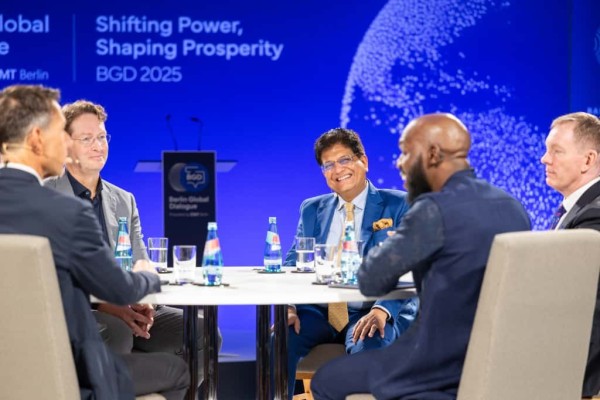
India has reaffirmed that discussions with the United States on the long-pending Bilateral Trade Agreement (BTA) are continuing, even as Washington seeks to accelerate the process. The Ministry of External Affairs (MEA) on Thursday said New Delhi remains “actively engaged” with the US to conclude the negotiations.
“We continue to remain engaged with the US side to conclude a trade deal, and these discussions are continuing,” MEA spokesperson Randhir Jaiswal told reporters during the weekly briefing in New Delhi.
The statement followed US President Donald Trump’s meeting with Chinese President Xi Jinping on the sidelines of the APEC 2025 Summit in South Korea, where the two leaders announced a series of new trade understandings. The US has also signed or advanced trade agreements with Japan, South Korea, Cambodia, Malaysia, and Thailand during the APEC and ASEAN summits this week.
Union Commerce and Industry Minister Piyush Goyal earlier this month described the India-US trade talks as “progressing in a cordial atmosphere.” However, he emphasised that no agreement would be signed unless it fully protects the interests of India’s key sectors, including agriculture, fisheries, and micro, small and medium enterprises (MSMEs).
“Free trade agreements or trade talks are never based on deadlines,” Goyal said on October 18. “There is no agreement unless we fully address the interests of the nation, India’s farmers, India’s fishermen, India’s MSME sector. The talks are progressing very well.”
The minister also voiced concern over the US’s continued push to close the deal quickly, cautioning that India would not be rushed into an agreement under external pressure. Speaking at the Berlin Dialogue recently, he remarked, “India does not do trade agreements in a hurry or with a gun to our head. We view trade partnerships as long-term relationships built on mutual trust.”
Goyal also criticised Washington’s decision to impose sanctions on Russian oil firms, calling the move inconsistent since several European nations had sought exemptions. “Why single out India?” he asked, pointing out that countries like Germany and the UK had already requested flexibility in sourcing energy supplies.
At the APEC Summit, President Trump praised New Delhi for reducing its imports of Russian crude. “India’s been very good on that front,” he told reporters, adding that while energy issues were not central to his talks with Xi Jinping, both leaders discussed ways to end the ongoing conflict in Eastern Europe.
The proposed Bilateral Trade Agreement was first announced in February 2025 following directions from Prime Minister Narendra Modi and President Trump. The pact aims to boost bilateral trade from the current $191 billion to $500 billion by 2030.
Five rounds of formal negotiations have taken place so far, including Goyal’s visit to New York in September. The first phase of the agreement was initially expected to be finalised by October–November 2025, though both sides have acknowledged that more time may be needed.
Key sticking points include high US tariffs on Indian goods—such as a 50% levy on certain exports and a 100% duty on branded pharmaceutical products.
For now, India remains cautious about any accelerated timetable for the pact. “The talks are ongoing, and we will announce the outcome when the time is right,” Goyal said.




